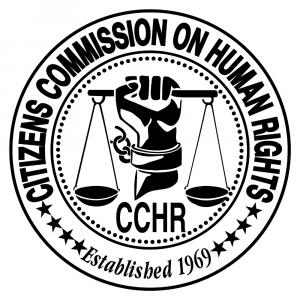
 Rather than leading to improvement in important socioeconomic factors in the lives of patients, psychiatric...
Rather than leading to improvement in important socioeconomic factors in the lives of patients, psychiatric... Rather than leading to improvement in important socioeconomic factors in the lives of patients, psychiatric diagnoses and drug treatment were linked to worse long-term outcomes, like lower income and unemployment.

Former director of the National Institute of Mental Health, Thomas Insel, directed billions of dollars into research that did not find a biological cause of any mental disorder, and so failed to support psychiatry’s biomedical model.
Psychiatric diagnoses and drugs were linked to lower income, increased unemployment, greater likelihood of being single and living alone.
— Lars Vedel Kessing, MD, Copenhagen University Hospital, Denmark
WASHINGTON, DC, US, November 15, 2023 /EINPresswire.com/ — A study from Denmark found that a large majority of the Danish population has been diagnosed with mental disorders and treated with psychiatric drugs, which researchers then linked to a subsequent increase in long-term socioeconomic difficulties, including lower income, higher unemployment, and a greater likelihood of being single and living alone. The study serves as a warning to the United States, as the number of Americans being diagnosed with psychiatric disorders and treated with psychotropic drugs continues to rise.
Researchers from the University of Copenhagen, Duke University, and King’s College London examined the medical records from 1995 to 2018 of 1.5 million randomly selected citizens of Denmark to see if the diagnosis of mental disorders or treatment with psychotropic drugs is associated with subsequent socioeconomic functioning, including employment, income, and residential and marital status.
They found that 83% of the group had been given a diagnosis of a mental disorder and/or a prescription for a psychotropic drug at some point in their lives. Among females, the figure was 88%, and for males 77%.
Rather than leading to improvement in important socioeconomic factors in the lives of patients, the diagnoses and drug treatment were linked to worse long-term outcomes.
“Socioeconomic difficulties were associated with mental health disorder/psychotropic prescriptions, including lower income, increased unemployment or disability benefit, and a greater likelihood of living alone and being unmarried during long-term follow-up,” wrote lead author Lars Vedel Kessing, MD, psychiatry professor at Copenhagen University Hospital in Denmark. The study was published in JAMA Psychiatry.
Commenting on the study, psychiatrist Peter Breggin, M.D., wrote: “When 80% or more of the population is treated as mentally ill, the concept has no meaning or relevance, except that it results in two powerfully disabling outcomes: (1) psychiatric drugs that universally disable the brain temporarily and too often permanently and (2) stigmatization and demoralization that undermine how the individual is viewed by himself and others.” Breggin goes on to say that the brain dysfunction caused by the drugs “can cause persistent mental, emotional, and spiritual decline, as confirmed in the Danish study.”
Psychiatric “diagnoses” have no scientific basis in the first place. In 2013, psychiatrist Thomas Insel, M.D., then-director of the National Institute of Mental Health (NIMH), rattled the psychiatric field by publicly admitting that there is no objective, scientific validity for psychiatry’s “diagnoses” of mental disorders.
The “diagnoses” were voted into existence by psychiatrists in an attempt to use a biomedical model in psychiatry, as in the field of medicine. Because the “diagnoses” remain based on subjective opinion, not lab tests, X-rays, or other scientific measures, mental disorders can be easily “diagnosed” and drug treatment prescribed, leading to Denmark’s extraordinarily high saturation of the population with psychiatric diagnoses and drugs.
More recently, Insel admitted in his 2022 book, Healing, that as head of the NIMH from 2002-2015, he directed billions of dollars into research looking for biological causes of mental disorders, in search of support for a biomedical model in psychiatry, but that his efforts were unsuccessful, failing to improve the mental health of Americans in any meaningful way.
He noted that during his tenure at NIMH, more Americans received mental health treatment, but mental health outcomes actually worsened by many measures. Suicides, overdoses and the rates of homelessness and incarceration of those diagnosed with mental disorders all increased – a worsening of social factors consistent with the negative outcomes found with the high level of mental health treatment in the Danish study.
Insel recognized the failure of psychiatric drugs and practices to help those in mental distress return to good mental health. With the number of prescriptions for psychiatric drugs having increased dramatically over the past several decades and with one in four Americans – some 77 million – currently prescribed a psychiatric drug, he was forced to ask himself the question: “Why, with more people getting more treatment, are the outcomes worse for people with mental illness?” [1]
He sees part of the answer in the psychiatric field’s heavy reliance on psychotropic drugs, criticizing current mental health treatment as “focused only on relieving symptoms and not on helping people recover.” [2]
In short, Insel has helped make the case that the current psychiatric practice of labeling people with a “diagnosis” and prescribing psychotropic drugs as treatment is doing more harm than good.
The psychotropic drugs prescribed as mental health treatment have a vast array of adverse effects that include mood swings, diabetes, weight gain, heart problems, aggression, psychosis, hallucinations, impulsivity, violence, and suicidal thoughts and actions, which no doubt contribute to worsening socioeconomic outcomes. Hundreds of warnings issued by international drug regulatory agencies and findings from research studies on the dangers of psychiatric drugs can be found in the Citizens Commission on Human Rights (CCHR) psychiatric drug side effects database. [3]
Psychiatry’s use of a biomedical model also takes a psychological toll on the individual. Psychology professor John Read and psychiatry professor Joanna Moncrieff, writing in Psychological Medicine, described the negative effect of telling patients that their unwanted emotional or behavioral issue has a biological cause, such as a chemical imbalance in the brain – a theory found to have no scientific basis. [4] They write that assigning a biological cause can be “profoundly disempowering” to the individual, focusing their attention on taking drugs instead of addressing the underlying causes of their mental distress. [5]
“It encourages people to view themselves as the victims of their biology, to adopt pessimistic views about recovery, increases self-stigma and discourages people from taking active steps to improve their situation,” they wrote.
The Citizens Commission on Human Rights continues to raise public awareness of the unscientific nature of psychiatric “diagnoses” and the dangers of psychiatric drugs, so that consumers and their physicians can make fully informed decisions about mental health treatment.
CCHR recommends a complete physical examination with lab tests, nutritional and allergy screenings, and a review of all current medications to identify any physical causes of depression or other unwanted mental or behavioral symptoms, which might otherwise be misdiagnosed as a psychiatric disorder and incorrectly treated.
WARNING: Anyone wishing to discontinue or change the dose of a psychiatric drug is cautioned to do so only under the supervision of a physician because of potentially dangerous withdrawal symptoms.
The Citizens Commission on Human Rights was co-founded in 1969 by members of the Church of Scientology and the late psychiatrist and humanitarian Thomas Szasz, M.D., recognized by many academics as modern psychiatry’s most authoritative critic, to eradicate abuses and restore human rights and dignity to the field of mental health. CCHR has been instrumental in obtaining hundreds of laws against psychiatric abuse and violations of human rights worldwide.
The CCHR National Affairs Office in Washington, DC, has advocated for mental health rights and protections at the state and federal level. The CCHR traveling exhibit, which has toured major cities worldwide and educated over 800,000 people on the history to the present day of abusive and racist psychiatric practices, has been displayed in Washington, DC, at the Congressional Black Caucus Foundation Annual Legislative Conference and other locations.
[1] https://www.counterpunch.org/2022/03/23/why-with-more-treatment-suicides-and-mental-distress-have-increased-former-NIMH-directors-new-book/
[2] https://www.theatlantic.com/ideas/archive/2022/02/american-mental-health-crisis-healing/622052/
[3] https://www.cchrint.org/psychdrugdangers/
[4] https://cchrnational.org/2022/07/28/comprehensive-new-study-finds-no-scientific-evidence-of-a-chemical-imbalance-in-the-brain-causing-depression/
[5] https://pubmed.ncbi.nlm.nih.gov/35100527/
Anne Goedeke
Citizens Commission on Human Rights, National Affairs Office
+1 202-349-9267
email us here
Visit us on social media:
Facebook
Psychiatric Diagnoses: No Science, No Cures
![]()
Article originally published on www.einpresswire.com as Psychiatric Diagnoses, Treatment with Psychiatric Drugs Linked to Worse Socioeconomic Outcomes for Patients, Study Finds
originally published at HUMAN RIGHTS - USA DAILY NEWS 24



